In the fast-paced world we live in, there’s a prevailing belief that constant action is essential for success.
However, amidst the chaos, the art of observation often goes overlooked. Observing without engaging actively can be a profound tool for personal development and growth.
The Importance of Observation in Personal Growth
Observation transcends mere visual perception; it represents a deliberate and intentional act of detaching ourselves from immediate reactions to immerse deeply in the world around us. This concept extends beyond passive sight; it encompasses actively observing and acknowledging the subtleties, nuances, and profound depths within every situation.
The art of observation isn’t merely about registering what is visible to the eye but about genuinely perceiving, understanding, and appreciating the intricacies present within our surroundings. It imparts invaluable lessons in exercising restraint, advocating for patience, and curbing impulsive reactions. By prompting us to step back and observe, it encourages us to recognize that not every circumstance necessitates an immediate or instantaneous response.
Developing the Skill of Observation
Cultivating mindfulness serves as the foundational bedrock in refining our ability to observe. Mindfulness, at its core, embodies being fully present in the current moment, allowing us to elevate our awareness of both ourselves and the environment surrounding us. Practices such as meditation and controlled breathing exercises aren’t solely relaxation methods—they function as transformative tools that heighten our capability to observe and interpret the complexities of our world.
These practices aren’t merely about quieting the mind; they are intentional actions aimed at training our cognitive faculties. Through consistent engagement with these techniques, our minds become more attuned and receptive. Meditation instills a sense of clarity, tranquility, and focus, fostering an environment conducive to deeper observation. Controlled breathing exercises facilitate a connection between our mental state and our physical presence, enhancing receptivity to subtle nuances within our surroundings.
Cultivating Mindfulness
Mindfulness practices, such as meditation and deep breathing exercises, transcend their surface association with relaxation. They are dynamic tools that sharpen our observational acumen. These practices immerse us in the present moment, allowing us to be profoundly attentive and responsive. By engaging in these practices regularly, we fine-tune our ability to discern intricate details within our immediate environment.
Meditation, in particular, nurtures a heightened sense of awareness, enabling us to perceive subtleties that might otherwise remain concealed. Deep breathing exercises foster a profound connection between our physical sensations and mental cognition. This heightened connection amplifies our observational capacity, enabling us to delve into situations with a more profound level of comprehension.
Enhancing Awareness
Observation surpasses passive acknowledgment; it necessitates an acute and deliberate focus on details. Sharpening our senses and consciously paying attention to nuanced elements bestows upon us profound insights into various situations. This sharpened awareness empowers us to discern subtleties that might elude a casual observer. It enables us to appreciate the intricacies inherent in situations, thereby fostering more nuanced perspectives and enabling more informed decision-making.
By honing our observational skills and nurturing mindfulness, we equip ourselves with invaluable tools for personal growth and enriched understanding. The deliberate cultivation of awareness not only deepens our connection with the world but also enhances our ability to navigate life’s complexities with clarity and insight.
Benefits of Observing Without Reacting
Observation without impulsive reactions yields a plethora of advantages:
Improved Decision-Making
Taking time to observe before acting empowers individuals to make informed and thoughtful decisions. Observation allows for a comprehensive understanding of a situation, leading to more well-rounded and deliberate choices.
Reduced Stress and Anxiety
Reacting impulsively often leads to heightened stress and anxiety levels. Observation encourages a composed response by providing time to analyze and comprehend a situation before responding, effectively reducing stress.
Enhanced Relationships
Being a keen observer aids in understanding others’ perspectives, nurturing better relationships. Observation enables individuals to decipher subtle communication cues, fostering empathy and understanding in relationships.
Observing in Different Aspects of Life
Observation transcends specific domains; it permeates various aspects of life:
Work and Career
Observation in the workplace facilitates a deeper understanding of dynamics, fostering more effective problem-solving and innovation. By keenly observing workplace interactions and situations, individuals gain insights that contribute to professional growth.
Relationships and Social Interactions
Observation in relationships allows individuals to be more empathetic, nurturing improved communication and deeper connections. By keenly observing gestures, tones, and non-verbal cues, individuals can better understand emotions and thoughts, thereby fostering healthier relationships.
Personal Development and Learning
Observation plays a pivotal role in self-reflection, enabling individuals to identify areas for growth and improvement. By observing their own actions, thoughts, and behaviors, individuals can make conscious efforts toward personal development.
Techniques to Cultivate Observational Skills
Several practices profoundly enhance our capacity for observation:
Mindfulness Meditation
Regular meditation sessions serve as a powerful tool to promote focus and attention, essential for effective observation. Meditation trains the mind to stay present and attentive, aiding in noticing and understanding details that might otherwise go unnoticed.
Journaling and Reflection
Maintaining a journal and reflecting on our experiences fosters deeper introspection. By documenting thoughts, feelings, and observations, we encourage a more profound understanding of ourselves and our environment. Reflective journaling helps connect dots and gain insights from past experiences.
Active Listening
Engaging in active listening is fundamental in honing observational skills. It transcends mere hearing; it involves understanding emotions, intentions, and the underlying message conveyed. By actively listening, we develop a deeper understanding of people and situations.
Overcoming Challenges in Observation
While observation is a potent tool, certain challenges might impede its effectiveness:
Dealing with Impatience
Patience is pivotal in effective observation. It requires practice and discipline to take the necessary time to observe thoroughly. By acknowledging impatience and consciously working towards cultivating patience, we create space for comprehensive observation.
Avoiding Over-analysis
Maintaining a balanced perspective without overthinking is crucial for clarity in observation. Over-analysis can cloud judgment and hinder our ability to observe objectively. By acknowledging this tendency and consciously maintaining a balanced perspective, we ensure effective observation.
Conclusion
In a world that often glorifies immediate action, the art of observation holds immense power. Learning to sit back and observe, understanding that not everything demands an immediate response, is a skill that can lead to personal growth and better decision-making.
FAQs (Frequently Asked Questions)
1. How can observation improve decision-making?
Observation allows for a more comprehensive understanding of situations, leading to better-informed decisions.
2. Is observation limited to specific areas of life?
No, observation extends across various aspects like work, relationships, and personal development.
3. What role does mindfulness play in observation?
Mindfulness enhances focus and attention, aiding in better observation and understanding.
4. How can one overcome impatience in observing?
Practicing patience through consistent effort is essential to overcome impatience in observation.
5. Can over-analysis hinder effective observation?
Yes, over-analysis can cloud judgment and hinder clarity in observation.





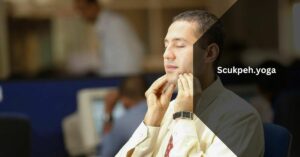
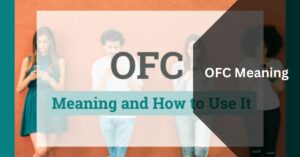
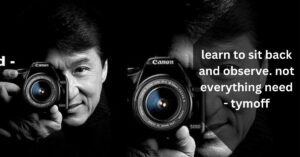

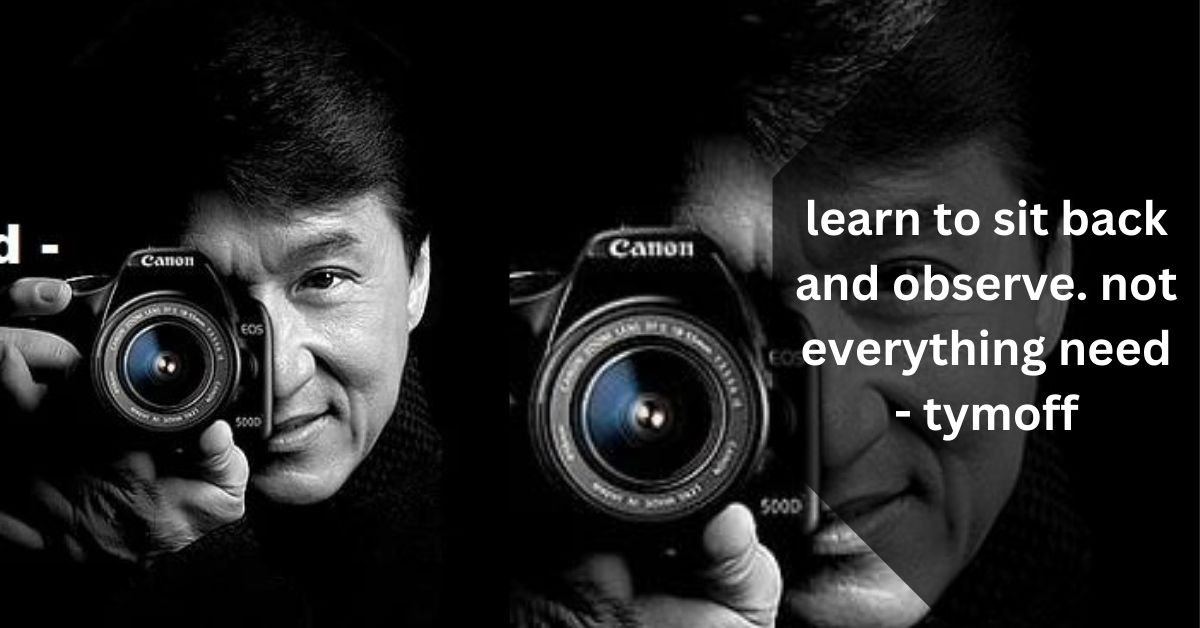





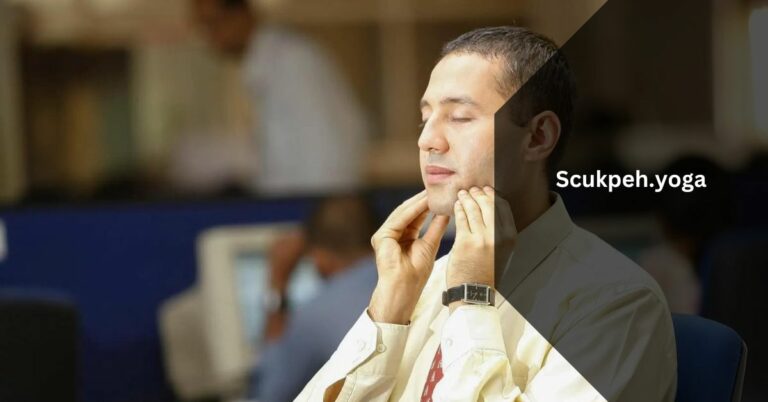
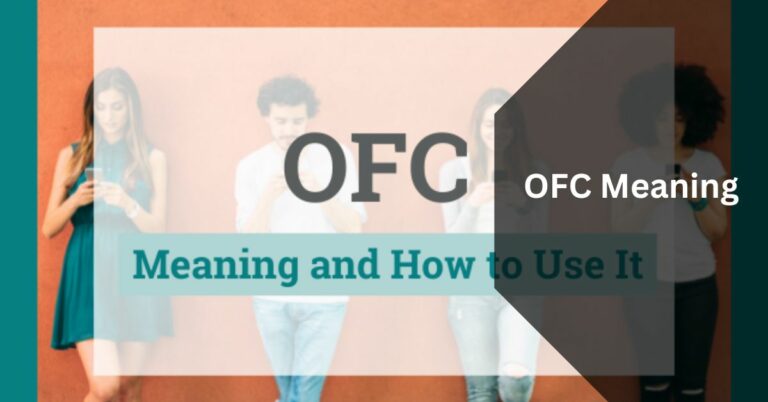
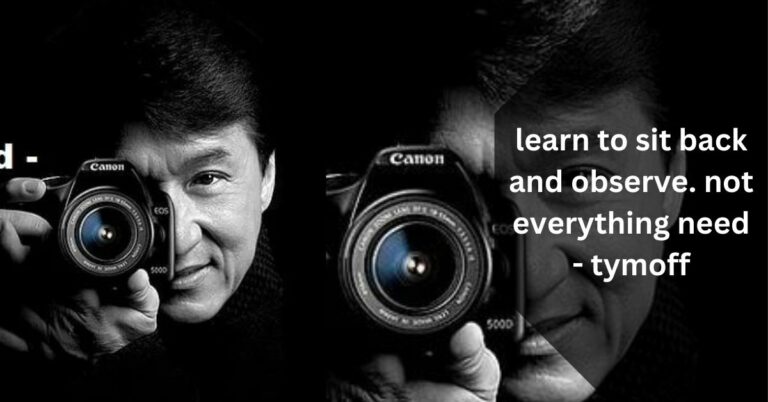
+ There are no comments
Add yours